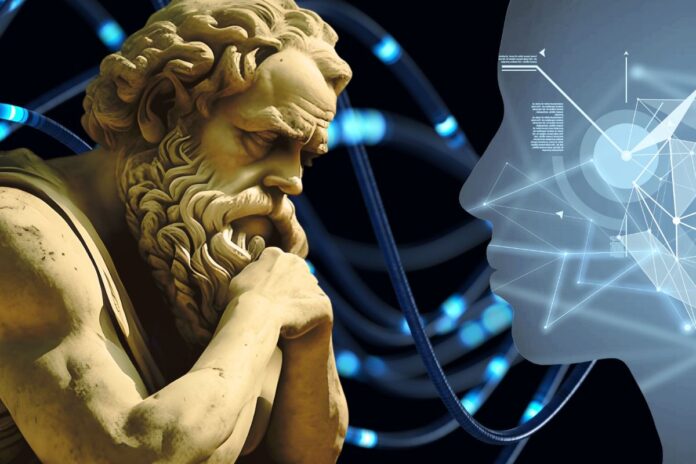(From the the Alphonsian Academy Blog )
“This invention will produce oblivion in the minds of those who learn to use it, because they will not exercise their memory. […it] will discourage the use of their own memory within them. You have invented an elixir not of memory, but of remembrance; and give your pupils the appearance of wisdom, not of true wisdom, for they will read many things without instruction, and therefore appear to know many things, when they are for the most part ignorant and difficult to get along with, for they are not wise, but they only appear wise.”
These words about writing, attributed to Socrates (469-399 BC) by Plato, are quite similar to what we hear today about artificial intelligence (AI). This demonstrates that, on an anthropological level, the ethical challenges of communication have been substantially the same over the centuries, even if the technologies used have changed and continue to evolve.
Artificial intelligence and other information and communication technologies (ICT) offer enormous possibilities for good but are not capable, on their own, of leading us to wisdom and authentic communication. In fact, “it is not technology that determines whether communication is authentic or not, but rather the human heart”.
In our technological world, we can confuse knowledge with problem solving; quick connection with secure understanding; relationships with simple contacts; exchanging information with friendship; think with a mechanical process; goodness with profit.
Artificial intelligence systems “can help overcome ignorance and facilitate the exchange of information” but are incapable of making sense of the data.
The Greek philosopher Thales of Miletus (VII-VI BC) stated that “there are not many words that demonstrate true wisdom” (WE Drake). Seneca also reacted with irony to the numerous statements that Lucilius continued to propose to him: “Do I need to know all this?
“Don’t be afraid of new technologies!” (RS 14), declared John Paul II. We must put aside catastrophic predictions about AI technologies, but we must also try to prevent their misuse. Instead of erecting barriers, we must discern how best to inhabit the anthropologically qualified space they are creating.
Martín Carbajo-Núñez, OFM
Do read the complete article from the Blog: Alphonsus Academy.






